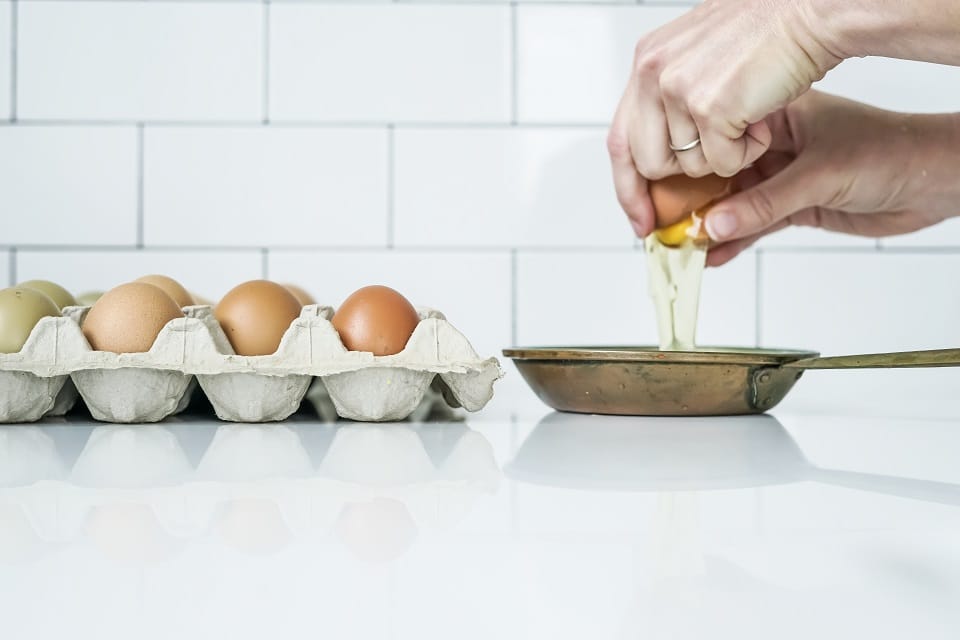Oh, the incredible, edible egg. Whether you like it savory-style in an omelet or frittata, or baked into a gooey chocolate cake, this superfood is recognized worldwide as one of the most well-rounded (no pun intended) foods out there. And, no matter where you live in Pennsylvania, there is likely a farm nearby offering fresh, wholesome eggs from happy free-range chickens. From Sunnyside Farm in Dover to Alderfer Eggs in Telford; from Blackberry Meadows Farm in Natrona Heights to Horse Shoe Ranch in Lancaster, every corner of our state is home to farmers raising chickens to produce quality eggs!
Read ahead for some facts you may not have known about the egg.

10 Facts You Didn’t Know About Eggs
1. In total, the U.S. produces about 75 billion eggs a year. That’s about 10% of the world supply.
2. The Guinness World Record for omelet making is held by Howard Helmer, who made 427 omelets in 30 minutes.
3. White eggs are the color preferred in most of the U.S., but brown eggs are preferred in New England. A hen’s color indicates the color of the eggs it will lay: White leghorn hens, the most common type in the U.S., lay white eggs.
4. To tell if an egg is raw or hard-boiled, spin it. Because the liquids have set into a solid, a hard-boiled egg will easily spin. The moving liquids in a raw egg will cause it to wobble.
5. The Zillion-Dollar Frittata is the most expensive omelet in the world: This $1,000 dish is served at Norma’s at the Le Parker Meridien hotel in NYC. It’s made with six eggs, an entire lobster and 10 ounces of sevruga caviar.
6. Chickens aren’t the only birds that lay edible eggs. Duck, quail, emu, goose and ostrich eggs can all be cooked up, as well.

7. Older hens tend to lay bigger eggs, but double-yolked eggs are produced by younger hens whose egg production cycles are not yet synchronized.
8. How often does a hen lay an egg? The entire time from ovulation to laying is about 25 hours. Then, about 30 minutes later, the hen will begin to make another one.
9. The more yellow and orange pigmented grains the chicken eats, the more yellow the yolk will be!
10. Yes, it is safe to store eggs at room temperature. But, if you want to extend their shelf life its best to refrigerate them. Eggs age more in one day at room temperature than in one week in the refrigerator
What are your favorite ways to cook up local eggs? Let us know!

Facts sourced from: ABC News, incredible!, EXPRESS, LiveScience, FineDiningLovers, DidYouKnow, WiseBread, SpicieFoodie, SunnyQueen.
- Photos for Horse Shoe Ranch: Dish Works





One Comment